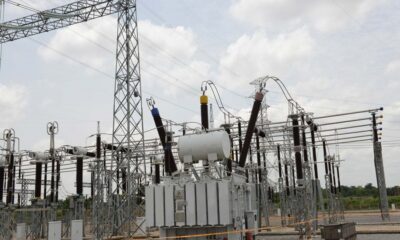A new report by Wood Mackenzie Ltd says Sub-Saharan Africa would need an investment of $350 billion between now and 2030, to be able to improve electricity generation/distribution and potentially solve the region’s long-standing electricity access problem.
The report, titled “Utility evolution in Africa to reshape global electricity demand” was released on Thursday (17th March) by the UK-based energy and consultancy group.
“These investment opportunities work around the fiscal and operational bottlenecks posed by some of Sub-Saharan Africa’s state utilities. Service providers are going straight to the bankable segments of residential, commercial, and industrial electricity demand, typically through distributed, renewable, off-grid solutions where the public utility does not feature.” The report says.
Wood Mackenzie Ltd is a global research and consultancy firm with over 50 years of practice. Wood Mackenzie partners organisations and governments to inspire better decision-making with a focus on oil, gas & LNG, power & renewables, chemicals, and metals & mining sector teams located around the world.
According to research, the number of people in the region with access to electricity has grown dramatically over the past decade, but about 600 million remain without power. To meet a United Nations goal of universal access by 2030, further progress is needed not only in grid link-ups but in off-grid systems using sources such as solar energy.
United Nations says “The number of people without access to electricity fell to around 1 billion in 2016 from 1.7 billion in 2000. The number of people gaining access to electricity each year is accelerating, thanks to strong successes in some countries, including Bangladesh, Ethiopia, India, Kenya, and Tanzania. Grid electrification has been the source of almost all energy access gained since 2000 and is likely to remain the most favourable option for many households, especially in more densely populated areas”
But Sub-Saharan Africa has been bedevilled with cases of grid collapse. Just last week in Nigeria, distribution companies announced the collapse of the country’s national grid amidst a nationwide blackout said “We would like to inform you of another system collapse on the National Grid which occurred at 5:10 pm today. We are monitoring the situation and will continue to provide updates.”
The electricity situation in Sub-Saharan Africa has been epileptic with Nigeria leading the race. Power in Nigeria has been in its worst moment since the past months as generation capacity dropped to 2,000 megawatts with about 14 power plants shutting down. Nigeria’s centralized electricity model have not yielded much for the West African country.
“Decentralized, bottom-up solar-and-storage grids could not only reshape Africa’s energy future but carry important lessons for the next generation of thinking on utility business models globally,” Benjamin Attia, an analyst at WoodMac, said
Electricity demand in Sub-Saharan Africa has doubled over the past 15 years and is expected to increase nearly eight-fold by 2050. The report by Wood Mackenzie said the growing demand is driven by these three fundamental-urbanization trends: population growth, rapid urbanisation, and structural economic transformation.
The report further attributed Africa’s long-standing electricity access problem to massive underinvestment in the region’s electricity infrastructure. It said with the right investments, Sub-Saharan Africa could potentially change the trajectory of electricity demand and supply, not only within the region but globally.
Now, the interesting part is that the declining costs of renewable energy, coupled with innovative business models, could make it easier to bridge the investment gap and provide reliable and affordable energy access across the region.

 Sports1 day ago
Sports1 day ago
 Metro2 days ago
Metro2 days ago
 Tech2 days ago
Tech2 days ago
 Metro16 hours ago
Metro16 hours ago























